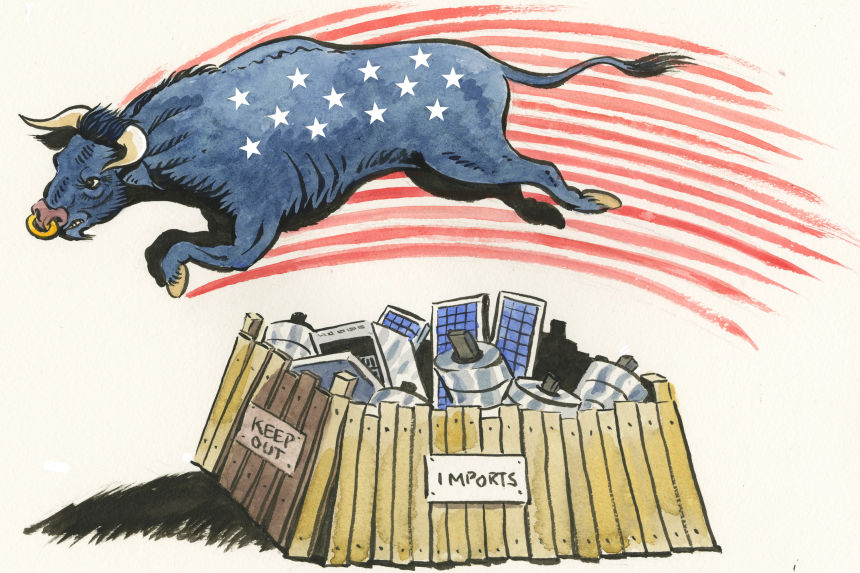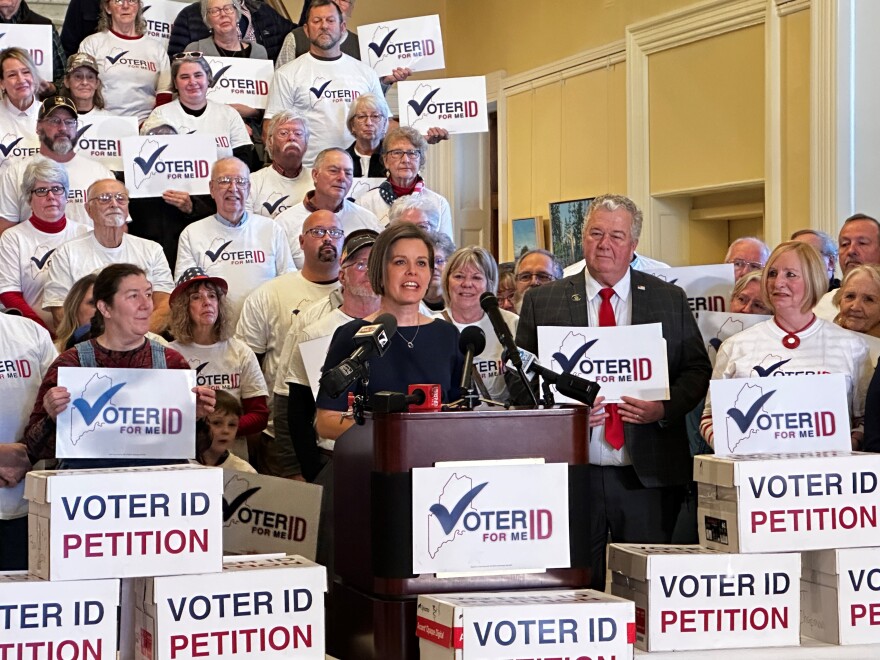Are Trump's Tariffs Beyond Judicial Review?

Table of Contents
The Scope of Presidential Power in Trade Policy
The authority of the President to impose tariffs, particularly those as extensive as the Trump tariffs, rests on a complex interplay between constitutional provisions and statutory grants of power.
Constitutional Authority and the Commerce Clause
The President's inherent powers in foreign affairs undeniably influence trade policy. Article II of the U.S. Constitution vests the President with the power to make treaties and conduct foreign relations. However, the Commerce Clause (Article I, Section 8, Clause 3) explicitly grants Congress the power "to regulate Commerce with foreign Nations, and among the several States, and with the Indian Tribes." This raises crucial questions about whether presidential actions in trade policy can exceed constitutional limits.
- Examples of past presidential trade actions: Previous administrations have employed various trade measures, but the scale and scope of the Trump tariffs were unprecedented, leading to intensified legal scrutiny.
- Legal precedents related to executive power in trade: Case law offers varying interpretations of presidential authority in trade, some affording more deference to executive action than others. The lack of clear precedent regarding tariffs of this magnitude contributed to the ongoing debate.
- Contrasting opinions on the extent of presidential discretion: Legal scholars hold sharply divergent views on how far presidential power extends in the realm of trade policy, especially when Congress has also enacted legislation regarding specific trade matters.
The Trade Act of 1974 and Section 301
Section 301 of the Trade Act of 1974 authorizes the President to take action against foreign countries engaging in unfair trade practices. This provision became a central battleground in challenges to the Trump tariffs. The debate centers on whether Congress effectively delegated sufficient power to the President under Section 301 to justify the scale and scope of the tariffs imposed.
- Key provisions of Section 301: This section outlines the process for investigating unfair trade practices and the range of remedies available to the President, including the imposition of tariffs.
- Interpretations by different administrations: Previous administrations have utilized Section 301, but the Trump administration's interpretation pushed the boundaries of its scope, leading to increased legal contention.
- Legal challenges based on exceeding statutory authority: A significant argument in legal challenges was that the President exceeded the authority granted by Congress under Section 301, thereby rendering the tariffs unlawful.
Legal Challenges to Trump's Tariffs
Challenging the Trump tariffs in court presented significant legal hurdles.
Standing and Jurisdiction
Those seeking to challenge the tariffs faced the significant obstacle of establishing standing – demonstrating a concrete injury caused by the tariffs. Furthermore, establishing jurisdiction – the court's authority to hear the case – presented additional challenges. The economic impact of tariffs is often diffuse, making it difficult to prove direct injury to a specific plaintiff.
- Examples of lawsuits filed against Trump tariffs: Numerous lawsuits were filed by various parties, including businesses, industries, and even foreign governments.
- Successful and unsuccessful challenges: While some challenges successfully raised procedural issues, direct challenges to the tariffs' substance frequently faced setbacks due to jurisdictional and standing issues.
- Arguments regarding standing and jurisdiction: Courts struggled with defining the threshold of economic injury needed to establish standing, leading to varying outcomes in different cases.
Substantive Arguments Against the Tariffs
Beyond jurisdictional hurdles, legal challenges raised substantive arguments against the Trump tariffs.
- Arguments raised in legal challenges regarding specific tariffs: Arguments often centered on the lack of sufficient evidence to justify the tariffs under Section 301, claiming they were arbitrary and capricious.
- Legal precedent used to support these arguments: Legal challenges referenced past cases where executive actions were found to be inconsistent with statutory requirements or violated due process.
- Responses from the government: The government consistently argued that the President possessed broad authority under Section 301 and that the courts should show deference to executive decisions in foreign policy matters.
The Role of the Courts in Reviewing Presidential Actions
The judiciary's role in reviewing presidential actions, especially in the realm of foreign policy and trade, is complex.
Judicial Deference and the Political Question Doctrine
Courts often exhibit deference to the executive branch in areas of foreign policy, recognizing the President's expertise and the need for swift action in international affairs. The political question doctrine holds that certain issues are better left to the political branches of government.
- Relevant Supreme Court cases illustrating deference to executive actions: Supreme Court precedents reflect a tendency to afford significant deference to presidential actions in areas involving national security and foreign policy.
- Arguments for and against applying the political question doctrine to tariffs: Arguments against applying the doctrine emphasized the significant economic impact of the tariffs and the potential for judicial review to safeguard the rule of law.
The Potential for Judicial Oversight
Despite the hurdles, scenarios exist where courts might intervene.
- Factors affecting the likelihood of judicial intervention: Procedural irregularities, violations of due process, or demonstrably arbitrary actions might create grounds for judicial review.
- Potential remedies that courts might grant: Courts could potentially order a halt to tariff implementation if they found sufficient legal flaws.
- Implications for the balance of power between the executive and judicial branches: Successful legal challenges would set important precedents concerning the balance of power between the branches of government in areas of trade policy.
Conclusion
This article explored the intricate legal landscape surrounding challenges to Trump's tariffs, encompassing the extent of presidential power in trade, the legal battles waged, and the judicial branch's role in overseeing executive actions. While judicial review faces limitations due to standing, jurisdiction, and doctrines like judicial deference, the possibility of successful legal challenges, particularly concerning procedural irregularities or due process violations, remains. The debate over the judicial reviewability of Trump's tariffs underscores the enduring tension between executive power and legal constraints in shaping trade policy. Further research and analysis are essential to grasping the limitations and potential of legal challenges to future presidential trade actions. Understanding the nuances of the Trump tariffs and their legal standing is paramount for anyone interested in trade law and the dynamics of presidential power.

Featured Posts
-
 1 Mayis Emek Ve Dayanisma Guenue Nde Yasanan Oenemli Olaylar
May 03, 2025
1 Mayis Emek Ve Dayanisma Guenue Nde Yasanan Oenemli Olaylar
May 03, 2025 -
 Lakazet 157 Gola I Istorichesko Izprevarvane Na Papen V Liga 1
May 03, 2025
Lakazet 157 Gola I Istorichesko Izprevarvane Na Papen V Liga 1
May 03, 2025 -
 Introducing The Latest Fortnite Icon Skin
May 03, 2025
Introducing The Latest Fortnite Icon Skin
May 03, 2025 -
 Is Doctor Who Going On Hiatus Russell T Davies Comments Fuel Speculation
May 03, 2025
Is Doctor Who Going On Hiatus Russell T Davies Comments Fuel Speculation
May 03, 2025 -
 Nebraskas Voter Id Campaign A National Recognition For Excellence
May 03, 2025
Nebraskas Voter Id Campaign A National Recognition For Excellence
May 03, 2025
